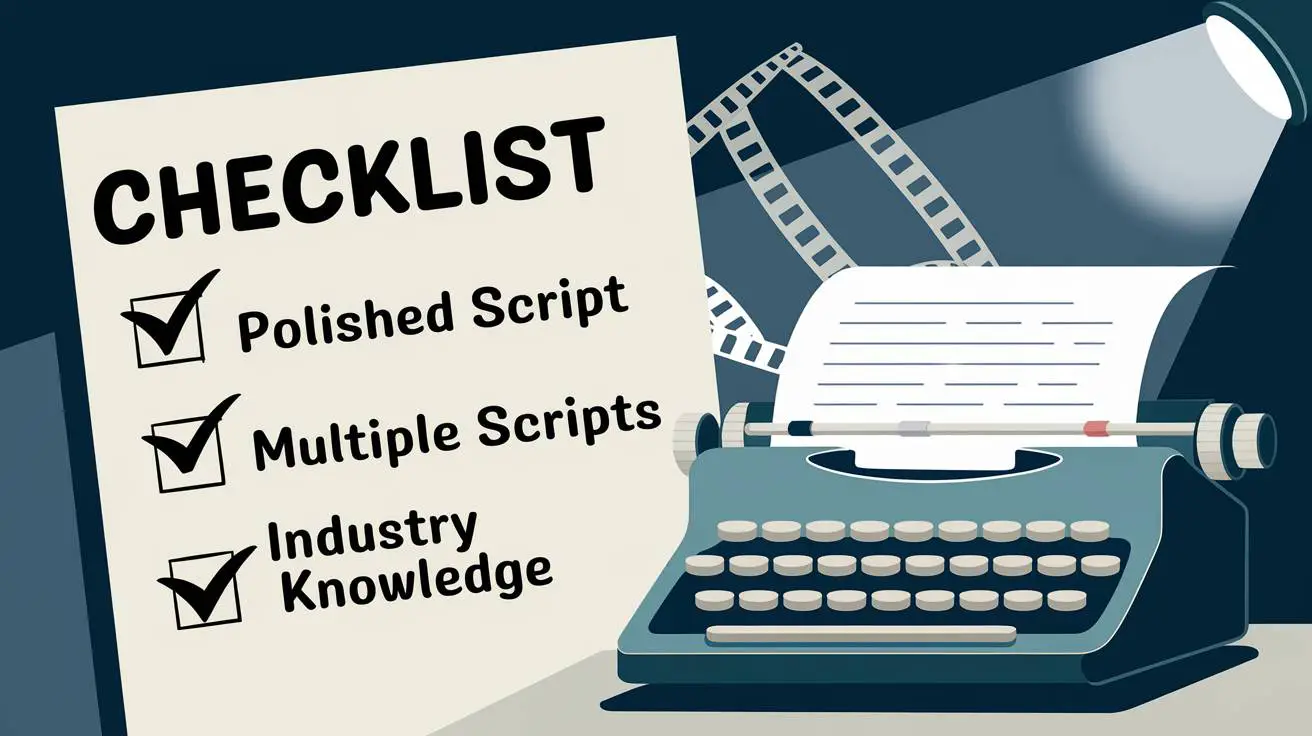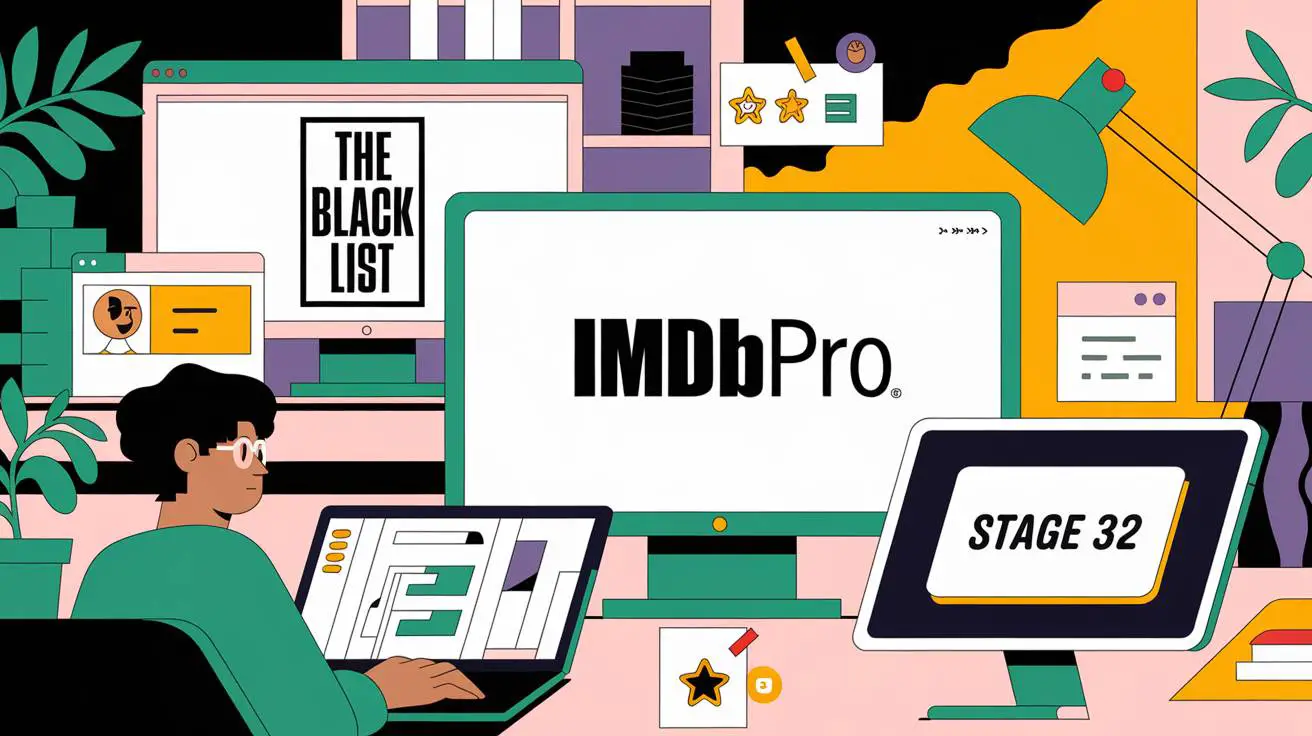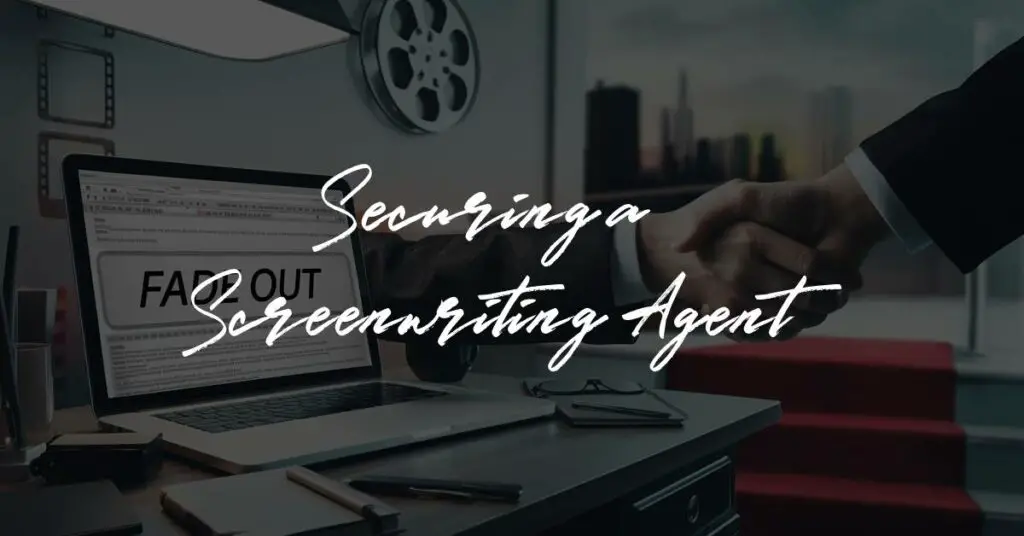Picture this: you’ve just typed “FADE OUT” on your screenplay, the one you’ve poured your heart and soul into for months. Now comes the challenging part—getting it into the hands of people who can bring it to life.
That’s where a screenwriting agent comes in, but securing one isn’t as straightforward as you might think. In this comprehensive guide, we’ll walk you through everything you need to know about getting a screenwriting agent in 2024’s evolving entertainment landscape.
Understanding Screenwriting Agents: Your Industry Gateway
Before diving into the how-to, let’s clarify what a screenwriting agent actually does. Think of an agent as your business partner in the entertainment industry—they’re not just someone who submits your scripts. These professionals negotiate deals, protect your interests, and connect you with opportunities you couldn’t access on your own.
Agents differ from managers in several key ways. While managers focus on career development and creative guidance, agents specifically handle deals and negotiations.
They typically take a 10% commission on your earnings, which is standard in the industry. However, they only make money when you do, aligning their interests with your success.
Many writers mistakenly believe agents will develop their careers or provide extensive creative feedback. In reality, agents focus primarily on selling your work and negotiating contracts. They’re dealmakers, not creative consultants.
Are You Ready for Agent Representation?
Before you start your agent search, you need to honestly assess whether you’re ready for representation. Here are the key indicators:
Portfolio Quality
Your scripts must be more than just good—they need to be market-ready. This means professional formatting, compelling storytelling, and unique voices that stand out in a crowded market.
Script Inventory
Most successful writers have multiple scripts ready to go. The industry standard suggests having at least three polished scripts in different genres that showcase your versatility while demonstrating your specific strengths.
Industry Knowledge
Understanding how the entertainment industry works is crucial. You should know the current market trends, major players, and recent successful projects in your genre.
Essential Preparation Steps
Polish Your Best Script
Your first script needs to be absolutely stellar. This means:
- Multiple drafts and revisions
- Feedback from trusted peers or professional script consultants
- Perfect formatting and presentation
- A unique angle or voice that sets it apart

Build Your Portfolio
Beyond your primary script, develop:
- A diverse range of writing samples
- A professional bio highlighting relevant experience
- A concise but compelling personal statement
- A list of loglines for your completed works
Market Understanding
Research current industry trends by:
- Reading trade publications like Variety and The Hollywood Reporter
- Following industry professionals on social media
- Analyzing recently sold scripts in your genre
- Understanding what different studios and production companies are buying
Primary Methods to Get an Agent
1. Writing Effective Query Letters
Your query letter is often your first impression. Make it count with:
Essential Elements:
- A compelling hook that grabs attention
- Brief, relevant biographical information
- Clear, concise logline for your script
- Professional tone and perfect grammar
- Specific reason for contacting that particular agent
Sample Query Template:
Dear [Agent Name],
I'm reaching out because of your recent work with [relevant client/project] and your focus on [specific genre/style].
My screenplay [TITLE] is a [genre] that [brief compelling description]. It recently [mention any relevant achievements or recognition].
I'm a [brief relevant background] with [any relevant credentials or achievements]. I have multiple market-ready scripts and am seeking representation to build a long-term career in screenwriting.
Would you be interested in reading [TITLE]? I'd be happy to send the script or additional materials at your request.
Thank you for your time and consideration.
Best regards,
[Your Name]
2. Networking and Industry Events
Building genuine industry connections is often more effective than cold querying. Focus on:
Screenwriting Conferences:
- Austin Film Festival Writers Conference
- ScreenCraft Writers Summit
- Final Draft’s Big Break Contest Events
Film Festivals:
- Sundance Film Festival
- Toronto International Film Festival
- South by Southwest (SXSW)
Industry Meetups:
- Local screenwriting groups
- Industry panels and workshops
- Virtual networking events
- Alumni networks
3. Competitions and Fellowships
Many successful writers have launched their careers through prestigious competitions and fellowships:
Top Screenwriting Competitions:
- Nicholl Fellowship
- Austin Film Festival Screenplay Competition
- Page International Screenwriting Awards
- ScreenCraft Fellowship
Notable Fellowship Programs:
- NBC Writers on the Verge
- Disney/ABC Writing Program
- Warner Bros. Writers’ Workshop
- CBS Writers Mentoring Program
4. Online Platforms and Resources
The digital age has created new pathways to representation:
The Black List:
- Upload your script for professional evaluations
- Network with industry professionals
- Get discovered through high ratings
IMDbPro:
- Research agents and their clients
- Track industry movements
- Find contact information

Additional Platforms:
- Stage 32 for networking and education
- InkTip for script exposure
- Virtual Pitch Fest for direct access
Alternative Paths to Representation
Sometimes the direct approach isn’t the best approach. Consider these alternatives:
Getting a Manager First
Managers can often:
- Help develop your material
- Connect you with agents
- Provide career guidance
- Build your industry presence
Entertainment Lawyers
Entertainment attorneys can:
- Handle initial deals
- Introduce you to agents
- Protect your legal interests
- Provide industry credibility
Creating Your Own Content
Build your portfolio through:
- Short films
- Web series
- Podcasts
- Social media content
Where to Find Agents
WGA-Signatory Agencies
Start with agencies that have signed the Writers Guild of America agreement:
- Major agencies (WME, CAA, UTA)
- Mid-size agencies
- Boutique agencies specializing in new writers
Research and Targeting
Use these strategies:
- Study agency websites
- Track recent sales in your genre
- Follow agencies and agents on social media
- Network with represented writers
Common Mistakes to Avoid
Don’t sabotage your chances by making these common errors:
Mass Querying
- Sending identical queries to multiple agents
- Not personalizing your approach
- Failing to research agents’ preferences
Unprofessional Presentation
- Submitting unpolished scripts
- Having typos in query letters
- Using incorrect formatting
Red Flags
- Never pay upfront fees
- Avoid agents who charge reading fees
- Be wary of guaranteed representation
After Getting an Agent
Once you secure representation, focus on:
Building the Relationship
- Maintain regular communication
- Be professional and reliable
- Follow submission protocols
- Meet deadlines consistently
Career Development
- Continue writing new material
- Stay informed about industry trends
- Build your network
- Develop your brand
Frequently Asked Questions
Do I need an agent to sell a script? While it’s possible to sell a script without an agent, having representation significantly increases your chances of success and typically leads to better deals.
When is the best time to look for an agent? The best time is when you have multiple polished scripts and a clear understanding of the industry. Quality matters more than timing.
How many scripts should I have ready? Have at least three market-ready scripts that showcase your range while demonstrating your unique voice.
What if an agent wants to charge me? Legitimate agents never charge upfront fees. They make money only when you do, through the standard 10% commission.
Additional Resources
Professional Organizations
- Writers Guild of America (WGA)
- International Screenwriters’ Association
- Script Writers Network
Recommended Reading
- “The Hollywood Standard” by Christopher Riley
- “The Screenwriter’s Bible” by David Trottier
- “Save the Cat!” by Blake Snyder
Industry Newsletters
- The Hollywood Reporter
- Deadline Hollywood
- Variety
- The Ankler
Conclusion
Securing a screenwriting agent requires a combination of talent, preparation, and persistence. Focus on developing your craft, building a strong portfolio, and creating genuine industry connections. Remember that getting an agent is just the beginning—it’s what you do with that representation that ultimately determines your success in the industry.
Remember: The path to getting an agent isn’t always linear. Some writers secure representation within months, while others take years. What matters most is continuing to write, improve your craft, and build meaningful industry relationships along the way.
Start by implementing the strategies outlined in this guide, but always remain flexible and open to opportunities. The entertainment industry is constantly evolving, and sometimes the most unexpected paths lead to the best opportunities.
Next Steps
- Polish your best script until it shines
- Develop additional material to showcase your range
- Research potential agents who represent writers in your genre
- Create a strategic plan for outreach
- Start building your industry network
The journey to securing representation may be challenging, but with persistence, professionalism, and the right approach, you can achieve your screenwriting goals. Keep writing, keep learning, and keep pushing forward.
